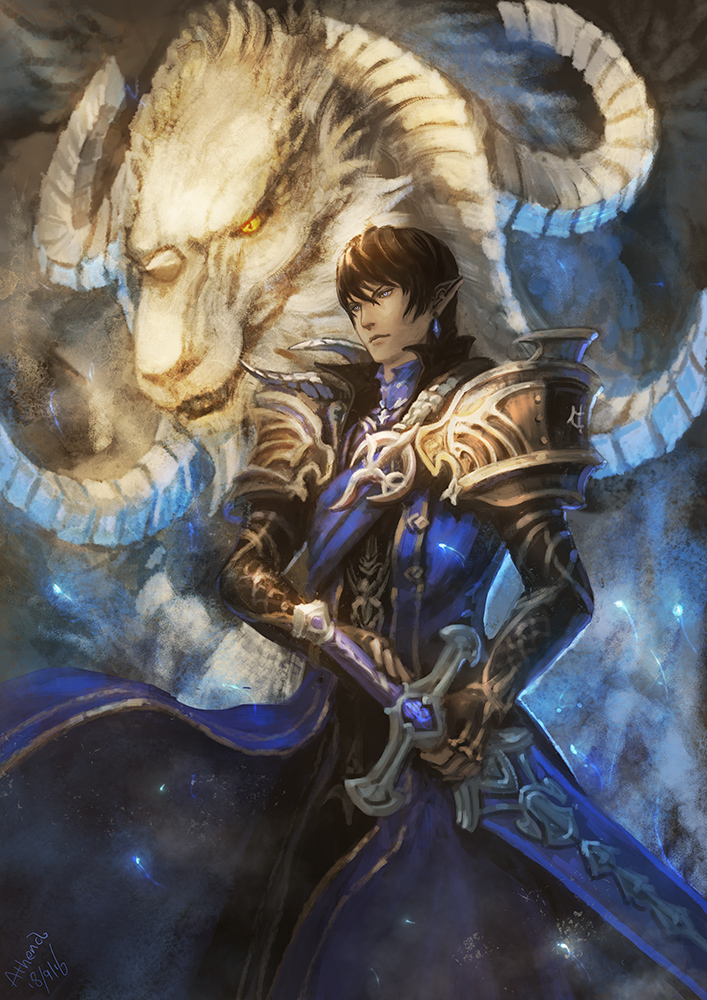Dragon society. In a phrase it can be summed up as: it doesn’t exist.
There are of course more intricacies to the situation, but the insular and superior nature of dragons and their need of a lot of resources means that they are solitary creatures by and large, and that means that they do not form societies of their own, despite their intelligent capability to do so.
 Occasionally you will get the odd exception to this rule, where a dragon has decided to insinuate itself into the culture of another race, as it will further it’s plans or ambitions, or it feels the need to protect the culture (depending on colour and general nature of the dragon in question). Even more rarely, but not entirely unheard of, dragons will build their own society, but humans tend not to have too much information on these rare occurrences, as they tend to hold themselves apart from human societies for the most part. They have never been known to last for more than a generation of dragons.
Occasionally you will get the odd exception to this rule, where a dragon has decided to insinuate itself into the culture of another race, as it will further it’s plans or ambitions, or it feels the need to protect the culture (depending on colour and general nature of the dragon in question). Even more rarely, but not entirely unheard of, dragons will build their own society, but humans tend not to have too much information on these rare occurrences, as they tend to hold themselves apart from human societies for the most part. They have never been known to last for more than a generation of dragons.
Mainly, the cause for a dragon society, when it does happen, is a bigger common threat to the dragons of a large area. Considering how fierce-some dragons are in their own right, you can imagine what kind of threat you would need to have to force dragons to put aside their differences temporarily, so that they can unite against this threat and put it down.
The least rare occurrence of a society would be a family unit, where because of tough conditions, or the rare nature of some dragons, the parents of a new clutch decide to stay together to raise the young wyrmlings into dragons that can fend for themselves before they split. This of course can continue, and large families, generally referred to as clans rather than a society, each claim territory next to one another, so the overall size can exceed that of some nations.
 When dragons do meet with each other, it tends to be because of a territorial dispute, at which point they will fight, a treasure dispute, at which point they will fight, or more rarely a religious disagreement, at which point they will fight. Dragons don’t tend to interact with each other as a species, and when they do if there is any sort of disagreement or argument between the two of them, then a fight is the most likely outcome, with the victor getting what they want, and the loser having to retreat, although it is interesting to note that these fights are very rarely to the death.
When dragons do meet with each other, it tends to be because of a territorial dispute, at which point they will fight, a treasure dispute, at which point they will fight, or more rarely a religious disagreement, at which point they will fight. Dragons don’t tend to interact with each other as a species, and when they do if there is any sort of disagreement or argument between the two of them, then a fight is the most likely outcome, with the victor getting what they want, and the loser having to retreat, although it is interesting to note that these fights are very rarely to the death.
Metallic dragon are more cordial than Chromatic dragons, but they are still territorial, and no dragon likes the thought of another dragon coming in and claiming bits of its hoard. So even though they are generally more good natured than their cousins, even metallic dragons tend to be solitary creatures, though they might be more inclined to interact with the societies or other races.


I love how seriously you describe all these aspects of dragons. The whole series has been incredible. Well done to you.
LikeLike
😀
LikeLike